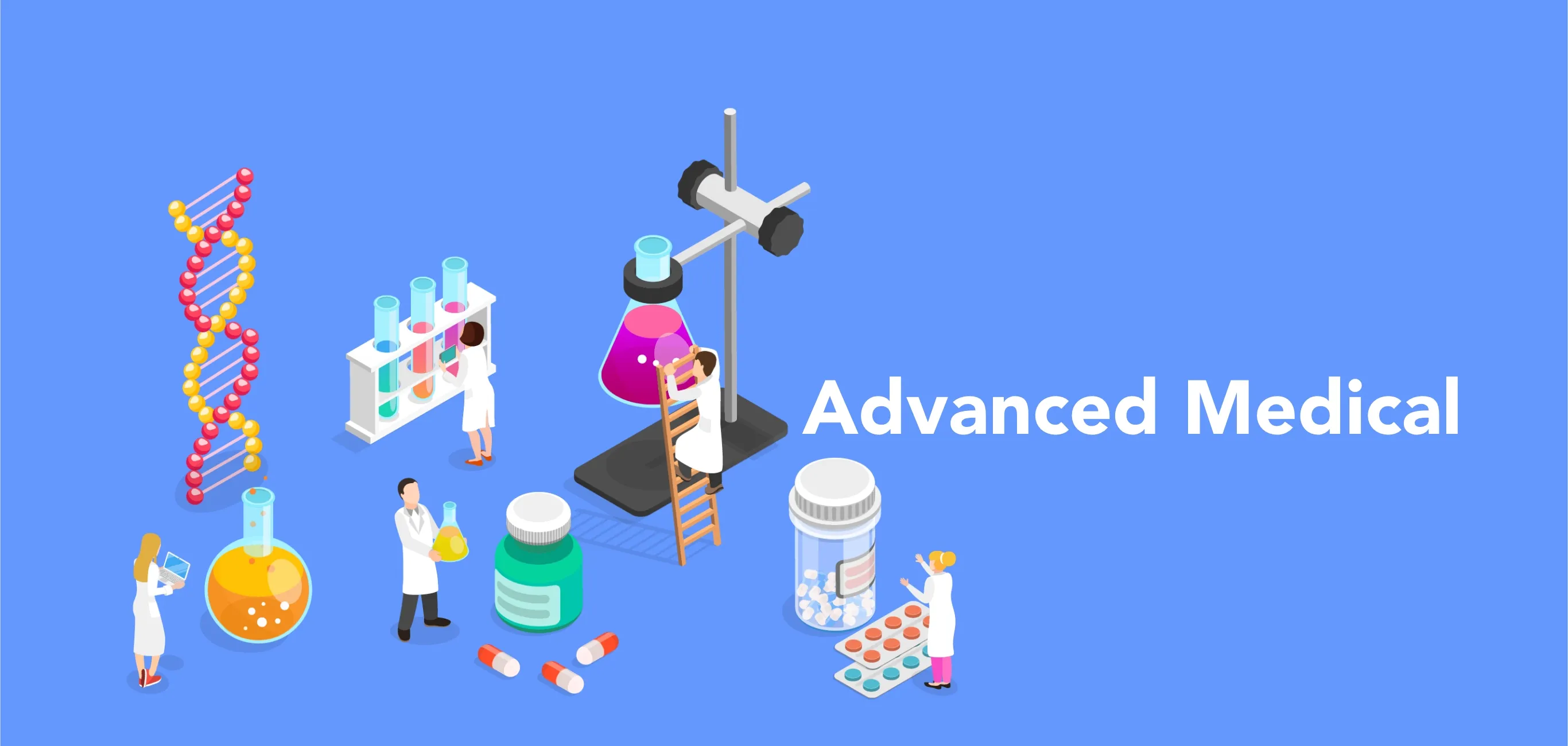
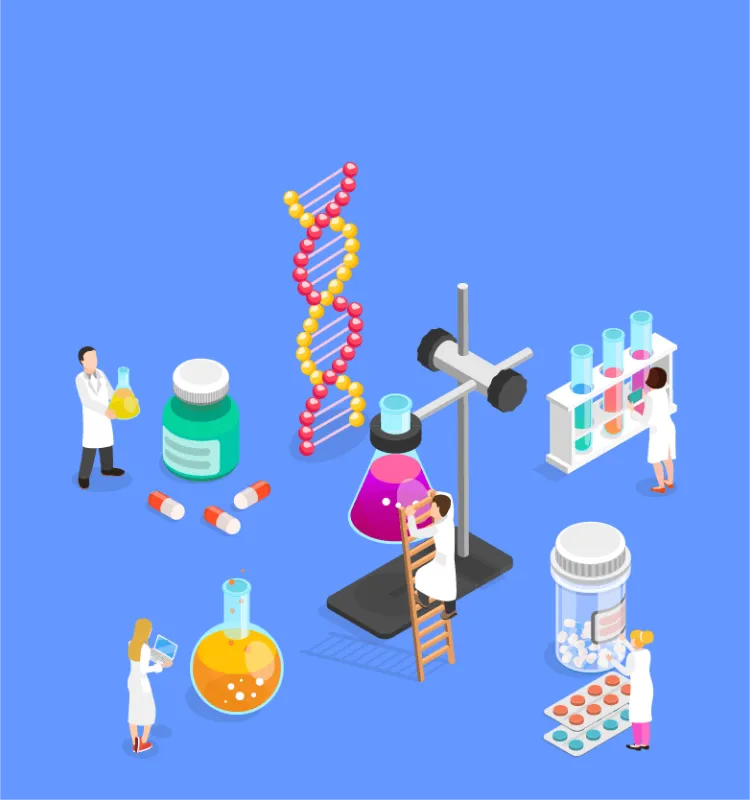
Advanced Medical
We consider “cutting-edge medicine” not only new treatment methods and procedures, but also innovative new technologies that contribute to health in a broad sense, including those for anti-aging.
Toward this end, we are actively engaged in the research and development of new treatments and medical technologies that will meet the needs of patients and society in the future.
We collaborate with medical institutions and research institutes around the world to support physical healing through the provision of innovative technologies.We aim to improve the quality of life of patients by providing innovative technologies. We are also committed to creating a world in which people can make free choices.
We value our contribution to a society in which everyone can enjoy a variety of rights to medical and health therapies.
With this mission in mind, we will continue to contribute to the advancement and development of field of medicine.
We will continue to contribute to the advancement and development of medical care, and are constantly striving to incorporate cutting-edge technologies.
Anti-Aging


As Japan's population ages, there is a growing need to extend healthy life expectancy through anti-aging therapies.
Nicotinamide adenine dinucleotide (NAD+) is a substance naturally synthesized in the body but decreases with age, contributing to the aging process. Sirtuin genes have been shown to rely on NAD+ to help prevent aging.We specialize in the contract manufacturing of research reagents for aging prevention, focusing on nicotinamide mononucleotide (NMN), which are precursors or enhancers of NAD+ metabolism, NMNH (Reduced NMN), and 5-ALA (5-aminolevulinic acid). Additionally, we provide contract manufacturing services for research reagents used in high-dose vitamin C therapy, which is expected to counteract aging by reducing oxidative stress.Leveraging our in-house expertise, we also screen new anti-aging substances and conduct research and development on liposomal supplements to enhance their bioavailability and efficacy.
Paper Cooperation
Kimura, S., Ichikawa, M., Sugawara, S., Katagiri, T., Hirasawa, Y., Ishikawa, T., et al. Nicotinamide Mononucleotide Is Safely Metabolized and Significantly Reduces Blood Triglyceride Levels in Healthy Individuals. Cureus, 2022, 14.9.
Photodynamic Theraphy (PDT)
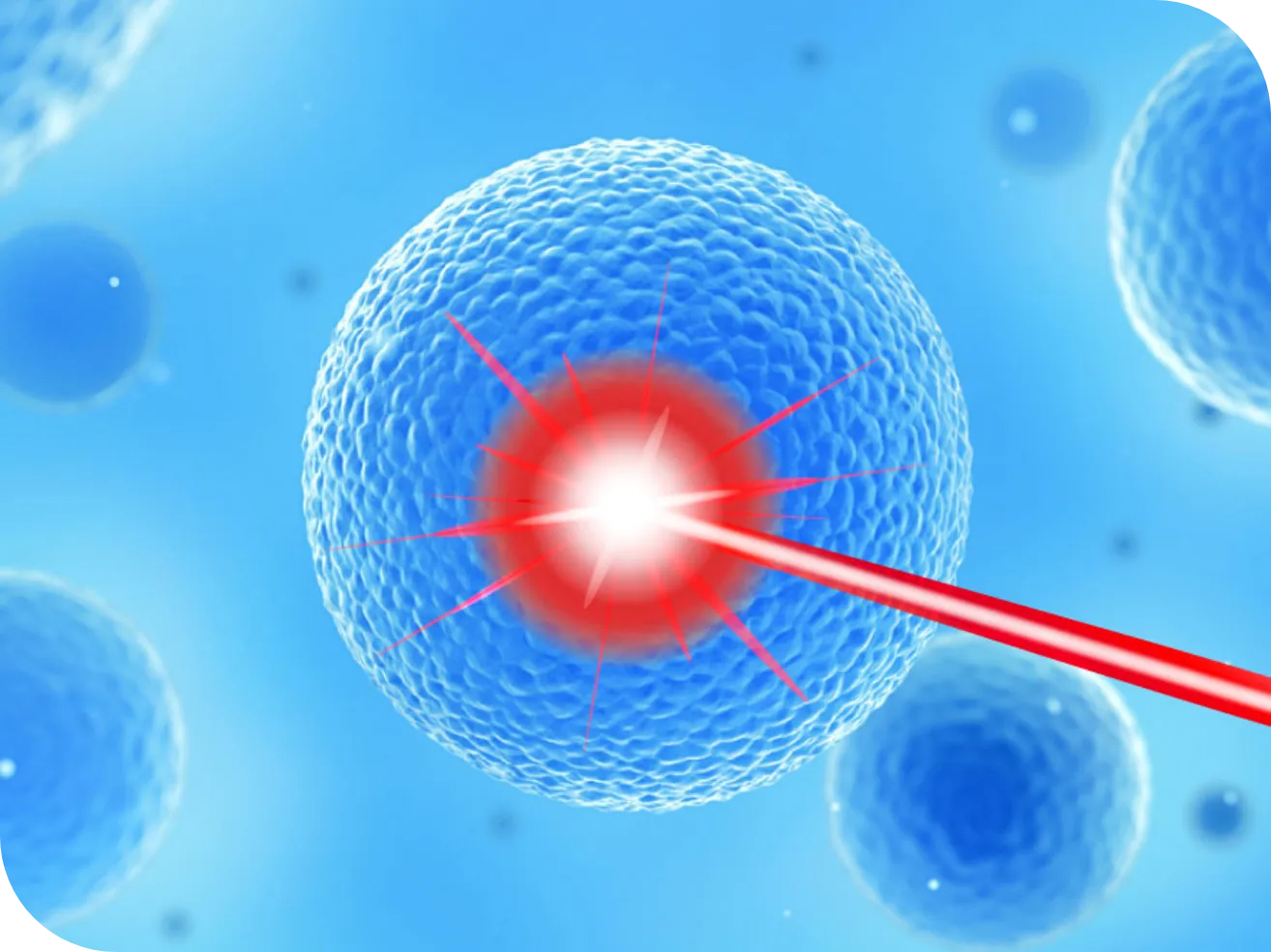
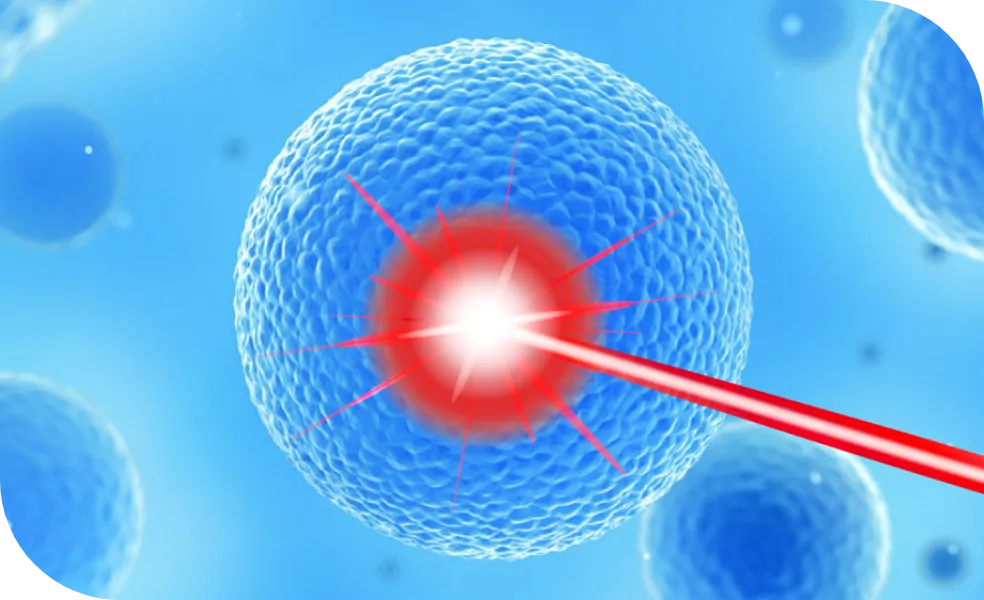
Photodynamic therapy (PDT) is a treatment method that selectively damages only tumor tissue without affecting normal tissue by inducing cancer cells to take up a light-sensitive substance and then irradiating them with light. Since the irradiated light has no cytotoxic effect, PDT is considered to be a treatment without serious side effects.
Since a certain level of therapeutic efficacy has been achieved in clinical trials, PDT is expected to become a treatment method following surgery, chemotherapy, radiation therapy, and cancer immunotherapy. Against this background, we have been engaged in the research and development of PDT since its inception, and have accumulated achievements not only in cell and animal experiments but also in clinical trials. Based on the knowledge and experience we have accumulated, we can provide our customers with the liposomes, micelles, and other macromolecular processing of novel light-sensitive substances.
Paper Cooperation
Yorozu, K., Kaibori, M., Kimura, S., Ichikawa, M., Matsui, K., Kaneshige, S., et al. Experience with Photodynamic Therapy Using Indocyanine Green Liposomes for Refractory Cancer. Journal of Personalized Medicine, 2022, 12.7: 1039.
Drug Delivery System (DDS)
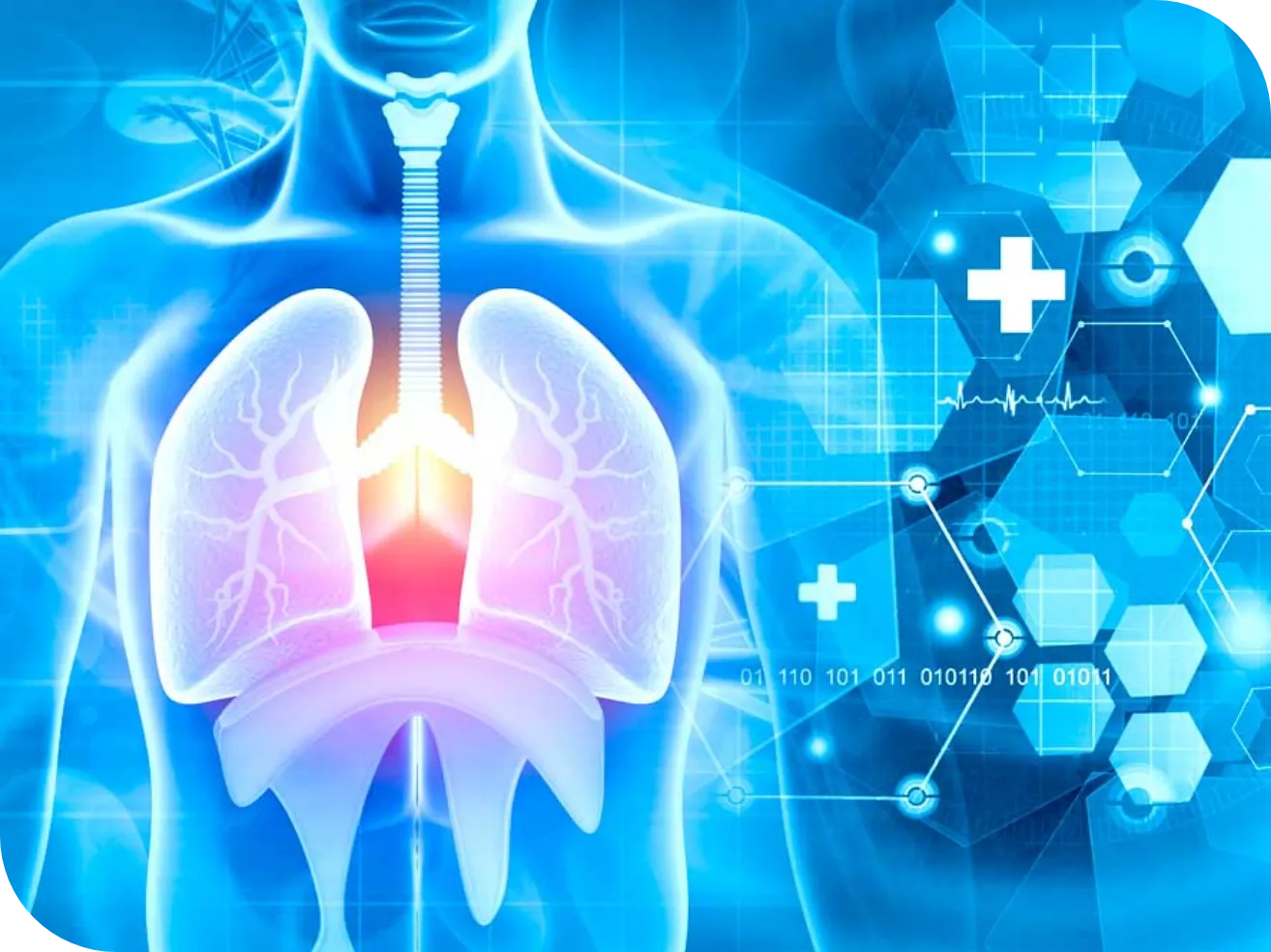
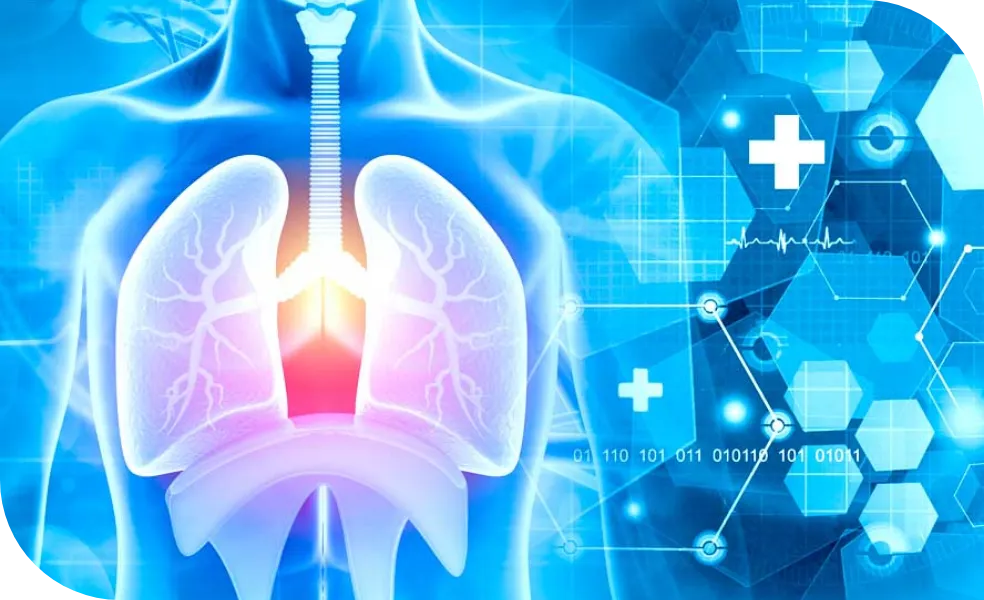
Tumor tissue is said to have an increased vascular permeability compared to normal tissue. As a result, macromolecules of 20-200 nm in size tend to leak out of blood vessels and have a reduced ability to be excreted into lymph vessels. This is called the enhanced permeability and retention (EPR) effect. In the field of drug delivery systems (DDS), research utilizing this phenomenon is being actively conducted. In collaboration with various medical institutions and research institutes, we are working on the research and development of anti-cancer drugs that effectively act on cancers but without side effects through the utilization of liposomes and micelles. We are also focusing on the tumor microenvironment, and are researching drugs that improve tumor stroma and specifically act on cytotoxic T cells.
Paper Cooperation
Yorozu, K., Kaibori, M., Kimura, S., Ichikawa, M., Matsui, K., Kaneshige, S., et al. Experience with Photodynamic Therapy Using Indocyanine Green Liposomes for Refractory Cancer. Journal of Personalized Medicine, 2022, 12.7: 1039.
Islam, W., Kimura, S., Islam, R., Harada, A., Ono, K., Fang, J., et al. EPR-Effect Enhancers Strongly Potentiate Tumor-Targeted Delivery of Nanomedicines to Advanced Cancers: Further Extension to Enhancement of the Therapeutic Effect. Journal of personalized medicine, 2021, 11.6: 487.




